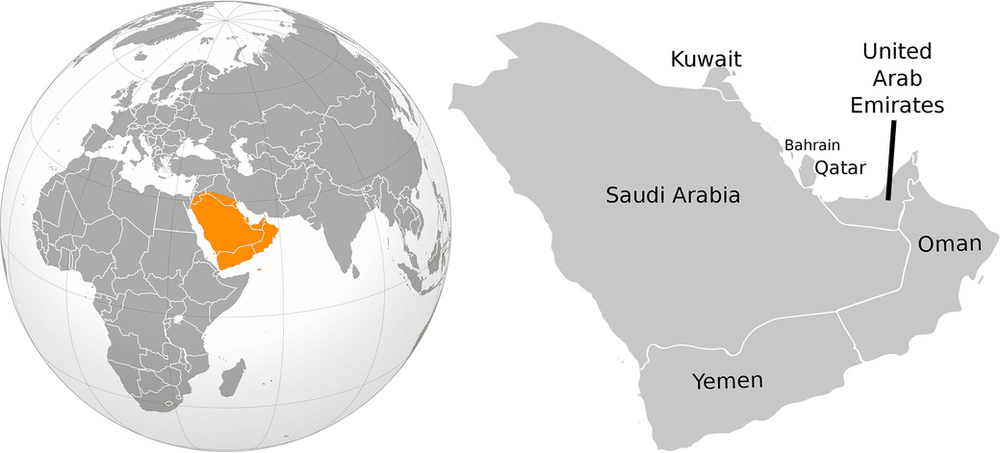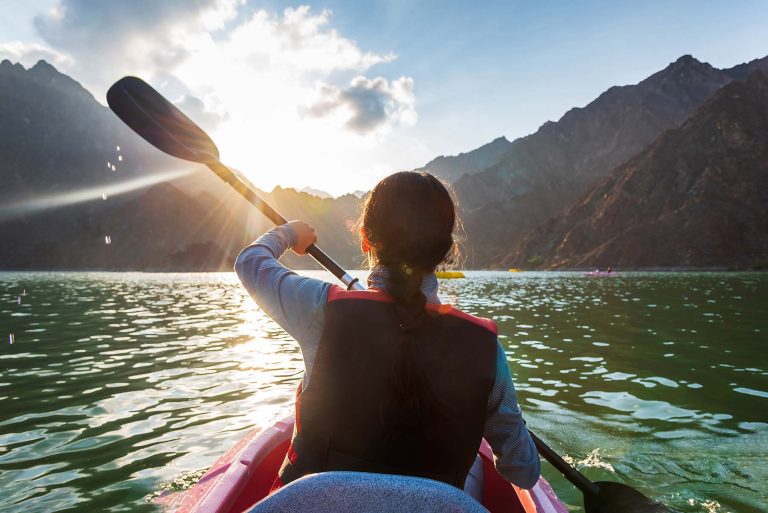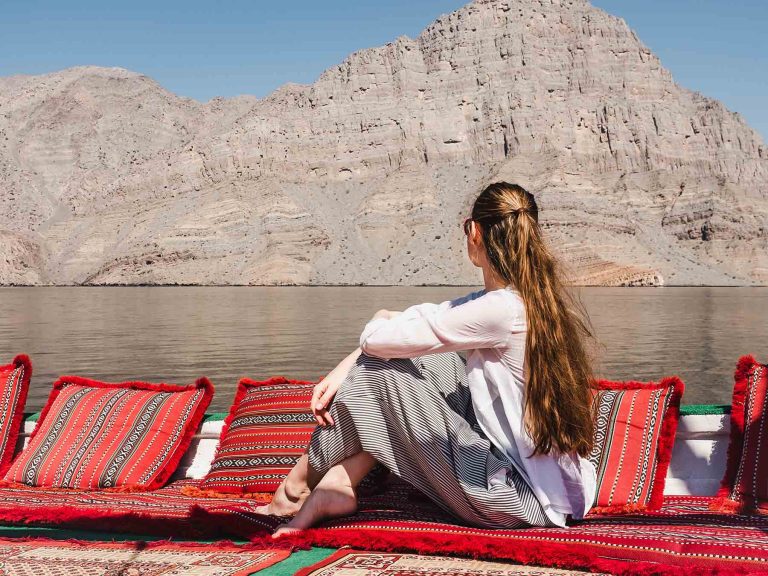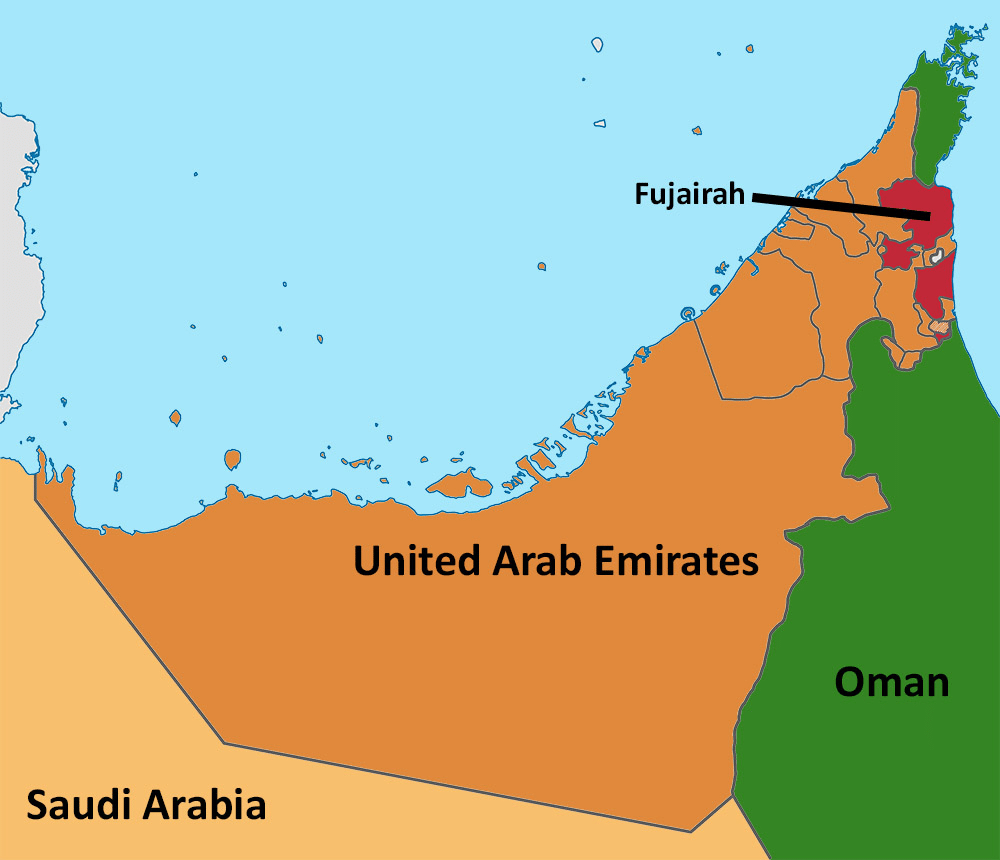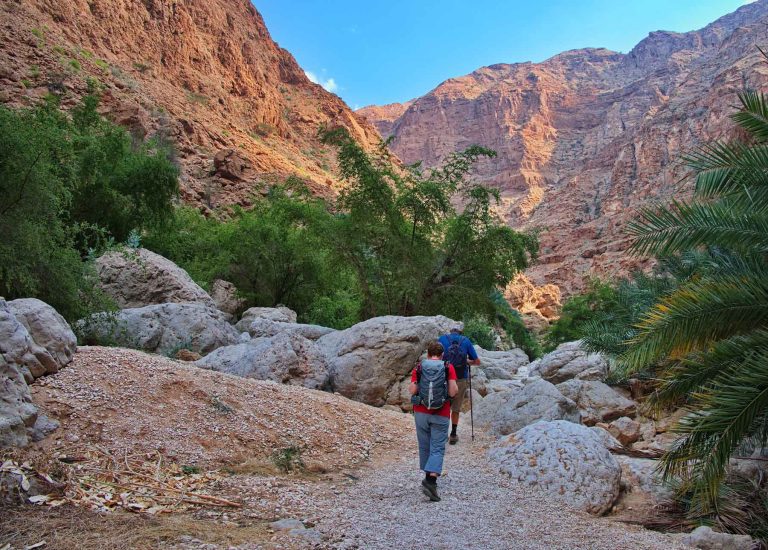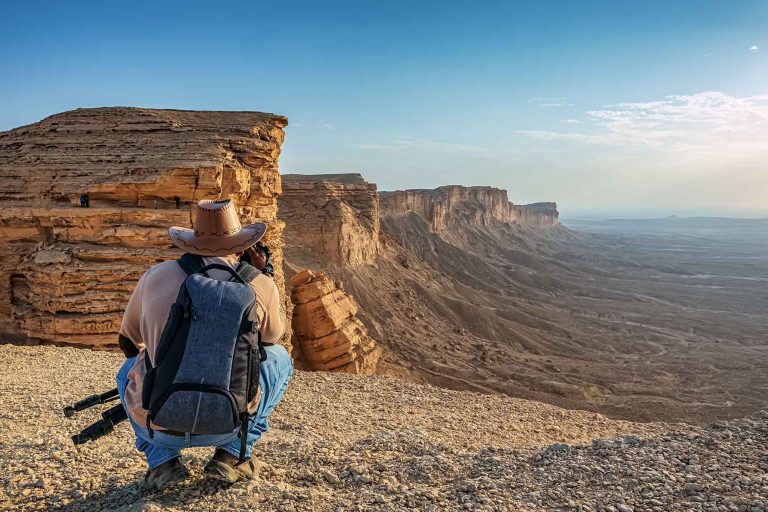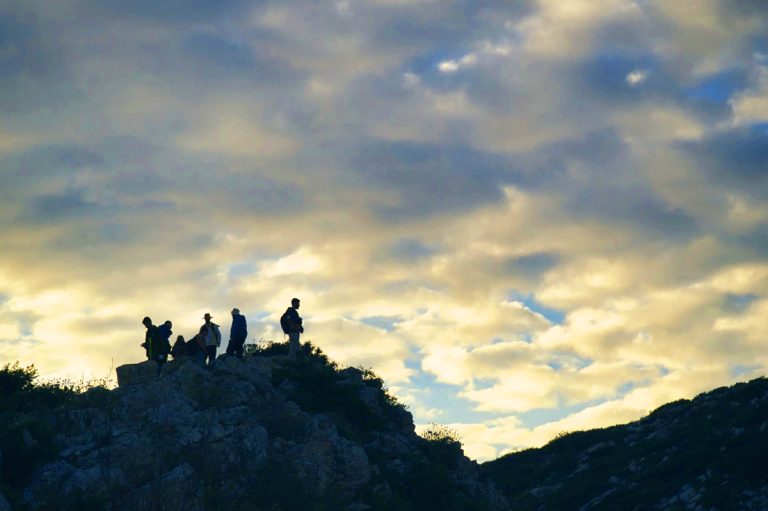
Alex Underhill was hiking on Jebel Jais mountain in the emirate of Ras Al Khaimah in the United Arab Emirates, when he began to feel faint and exhausted. Temperatures were rising to 45 degrees C (113 F) in the desert area, known for unmarked trails, loose rocks and steep cliffs. He was running low on water.
The 25-year-old Briton turned back, but fell, hitting his head, and became unresponsive. His hiking companion tried to call for a helicopter, but was out of cell phone range. By the time rescuers arrived, Alex was dead.
Several months later, a British hang glider flying in the same region at 1,000 meters lost control, crash landing into a tree and breaking multiple bones, and a recreational paraglider in Ras Al Khaimah lost control and crash landed, sustaining moderate injuries.
“Accidents happen,” the paraglider said.
But when adventurers run into trouble in the out-of-doors, rescuing them brings risks too.
In December 2018, just months after the paragliding incident, a mountain search and rescue helicopter encountered tragedy when attempting to rescue a person in the Jebel Jais area near a 2,830-meter adventure zipline, the world’s longest.
“The helicopter hit the zipline, and spun around, and then there was a massive boom,” a bystander said. “There was fire everywhere.”
All four crew members died.
The fatal event brings to mind a similar tragedy in the eastern European nation of Georgia, where a helicopter crew of eight died while attempting to rescue a crash-landed paraglider stranded on a steep cliff.
The UAE’s tourism sector is generally well-regarded for its safety requirements and practices. But following the incidents in the UAE, a lack of regulation related to outdoor activities was pointed out in the press.
“Adventure Tourism Needs Better Regulation,” the headline in the UAE’s The National read.
The United Arab Emirates, and other nations on the Arabian Peninsula and in the Persian Gulf region, have since made significant progress in supporting the adventure tourism and outdoor recreation sector through adventure safety regulation.
Let’s take a look.
Fujairah
Fujairah, one of the seven emirates that comprise the UAE, offers opportunities to explore the pools and waterfalls of picturesque mountain wadis (canyons/valleys), and go diving, snorkeling, hiking, camping, bicycling, and rock climbing.
Fujairah Adventures, established by the Crown Prince of the Emirate of Fujairah in 2017, is a government body for promoting and regulating adventure tourism in the principality.
The center, which describes itself as one of the few governmental entities around the world that solely focuses on adventure activities, has numerous initiatives underway having to do with adventure standards. These include:
- Establish new accreditation parameters
- Establish the handbook for adventure sports
- Engage professionals to create content
- Publish reviews and thought leadership content
- Create an association for adventure sport standards
The center also operates Fujairah Adventure Park, which offers biking, lake kayaking, climbing, hiking, and camping.
In its regulatory role, Fujairah Adventures operates a permit service for companies organizing adventure activities. The center issues one-year and one-day permits for mountain hiking, mountain biking, climbing, camping, cycling and safari trips.
The center also publishes minimum operating standards for adventure activities, under its regulations and laws project. Conformance to those standards is necessary in order to receive a permit (also variously referred to by the center as a certificate, registration or license).
Under the regulations, the minimum operating standards for outdoor activities include:
- Be certified in first aid for outdoor activities by an approved provider
- Provide an appropriate qualification for the location and activity (which can come from a training body based outside the UAE)
- Be aware of environmental and cultural impacts of relevant outdoor activities
In addition to those requirements, which apply to all adventure activity operators, activity-specific standards apply, including:
- Operators of 4×4 safaris must complete an off-road driving course in the UAE
- Individuals overseeing cycling activities must have long-distance cycling experience, know local roads and hazards, choose appropriate safety equipment, and have field maintenance and repair skills
All adventure companies must also have insurance covering their adventure activities.
Dubai
The Emirate of Dubai, a larger cousin of Fujairah, is vitally interested in tourism, including outdoor adventure activities. Since Dubai has fewer oil and gas resources than other emirates, tourism is a key economic sector.
Dubai’s ambitious ten-year Dubai Economic Agenda (‘D33’) aims to double Dubai’s GDP over the next 10 years and make Dubai one of the world’s top three destinations for tourism.
Dubai has a licensing and training system for guides, as do many regions, but it is not adventure-specific.
Dubai does have regulations for ropes courses, ziplines, climbing walls, and other installations used for recreation or amusement.
The 2022 regulatory requirements cover a wide variety of safety topics, including:
- Incident reporting
- Emergency planning
- Risk assessment
- Emergency evacuation supplies
- Safety in inclement weather, including lightning and high winds
- Maintenance
- Site supervision
- Personnel training and competency (including topics, required certifications, minimum training hours and required experience levels)
- Conformance to local customs and traditions
- Documented operating procedures
- Participant safety instructions
- Record-keeping (including to the standards of BS EN 13814 Safety of amusement rides and amusement devices)
- Safety officer duties
- Inspection by competent authority meeting Emirates International Accreditation Centre accreditation requirements for inspection bodies working in fairground and amusement equipment
Oman
The Sultanate of Oman is diversifying its historically petroleum-oriented economy to include tourism, taking advantage of spectacular mountains, lush coastlines, and dramatic desert landscapes.
Diving, canyoning, trekking, ziplining, bicycling, camel riding, rock climbing, paragliding, 4×4 offroad driving, caving, stand up paddleboarding (SUP), sand boarding, kayaking, and wildlife viewing are popular.
To regulate these activities, the Ministry of Heritage and Tourism in Oman, on the Arabian Sea adjacent to the UAE, launched a licensing system for adventure tourism operators in 2023.
The system aims to foster the growth of Oman’s adventure tourism sector in a systematic way, and support Oman’s Vision 2040 plan to develop the nation’s adventure tourism economy.
Risk Assessment for Adventurous Activity template section. The rightmost column, showing the limitations of Google Translate, illustrates translated template ratings for environmental conditions.
Applicants submit a series of documents, including a safety management system, emergency plan, a roster of activity leaders and their certifications/qualifications, and site plans.
The applying organization is audited by the Royal Omani Army’s Adventure Training Center (which may also offer training courses for adventure tourism guides). If the organization passes an audit, a license is granted. The renewable license is valid for two years.
The Ministry also provides document templates, including:
- Site-specific risk assessments
- Administrative plan (emergency response, provision of water, communications, medicine, food, etc.)
- Safety instructions for participants
- Activity plan
- Evacuation plan
- Emergency plan
- Equipment inventory record
- Equipment inspection record
- High element equipment use and tracking form
Left: the evacuation plan flow chart advises to assess the situation and contact emergency services. Right: Equipment data acquisition form, providing guidance for equipment tracking, noting international safety standard (UIAA), manufacture date and serial number.
Saudi Arabia
Vast deserts, green mountains, and ocean environments make the Kingdom of Saudi Arabia, the largest nation on the Arabian Peninsula, an attractive destination for a huge variety of adventure tourism experiences.
Scrambling through canyons, snorkeling over a coral reef, riding Arabian horses and paragliding are among the myriad options.
The Kingdom, like with Oman, is seeking to diversify its economy beyond fossil fuels, and is planning to greatly boost adventure tourism. Although travelers must be aware of the country’s culture and laws to avoid undesired situations, the educated adventure tourist who decides to explore KSA will find a nation making major changes to welcome outdoor recreation-seekers.
Saudi Arabia amended its Tourism Law in 2022, and is active in seeking to develop risk management structures for its adventure tourism activities. These outdoor safety frameworks will be put to use in the Kingdom’s NEOM project, a trillion-dollar, 10,000 square mile futuristic development in northwestern Saudi Arabia.
NEOM components include an ecotourism destination, Leyja, located on the Gulf of Aqaba, which is to offer guided wadi walks, horseback riding, hiking trails, mountain biking, and climbing. In the Sarawat Mountains at 2,400 meters elevation, the planned 60 square kilometer outdoor-activity resort Trojena will offer snowboarding and skiing on 36 km of ski slopes.
Outdoor Adventure Industry Contributions
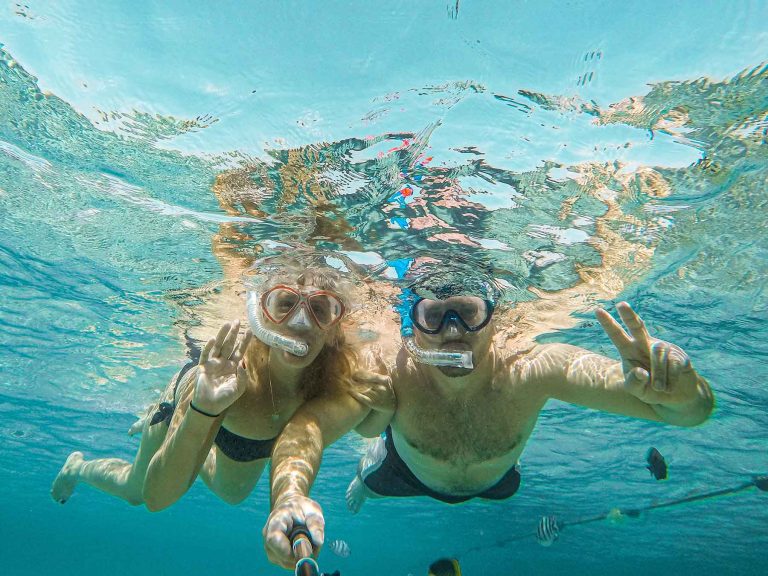
It takes more than regulations, however, to support a high-quality adventure travel sector.
Local outdoor industry associations have an important role to play, too. These can be generalist associations broadly supporting experiential adventure, outdoor recreation, and the like, or activity-specific bodies, such as climbing and paddlesports organizations.
These groups, generally nonprofit membership organizations, provide professional development opportunities, offer schemes for accrediting adventure providers/operators, and facilitate the development of voluntary standards or codes of practice (also known as good practice guidelines or activity safety guidelines).
The outdoor adventure private sector also provides a valuable service by conducting high-quality standardized training to adventure company managers as well as to in-the-field guides, instructors and tour leaders.
These trainings include wilderness first aid, activity-specific courses such as in scuba diving or mountaineering, and risk management.
The Risk Management for Outdoor Programs training by Viristar, for example, has been well-received by outdoor and adventure professionals in the UAE, Lebanon, Oman, and over 60 countries worldwide.
Phil Austin-Smith, Expedition and Remote Programs trainer and facilitator in Oman, said, “Viristar’s Risk Management for Outdoor Programs course is the most comprehensive risk management course I have completed…highly recommended.”
Leaders in Japan’s adventure guide sector are seeking to establish the course as the international standard for outdoor safety training to be used for adventure guides in Japan.
On a local level, the Ras al Khaimah UAE-based Adventurati Outdoor, led by a graduate of the Risk Management for Outdoor Programs course by Viristar, offers trainings on mountain safety for those exploring the UAE’s rugged peaks.
Conclusion
The Arabian Peninsula and the wider Middle East offer world-class opportunities for outdoor exploration and adventure travel.
The push to enhance outdoor recreation and wilderness risk management in the region follows calls to regulate adventure safety in Switzerland, India, the UK, Finland, New Zealand, the eastern European nation of Georgia, Thailand and Japan.
The unfortunate incidents that befell Alex Underhill and other adventurers are a reminder of the value of well-crafted, common-sense adventure safety requirements and standards.
As outdoor safety practices improve across western Asia, we can expect the outdoor adventure sector—and the social and economic benefits it brings—to grow.
